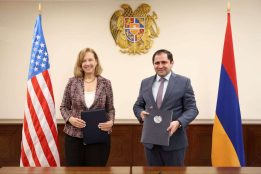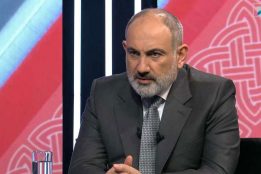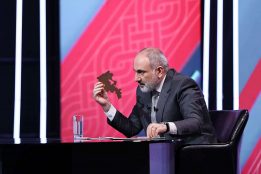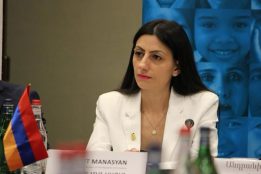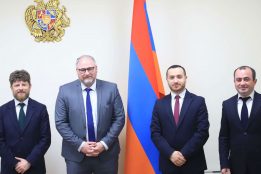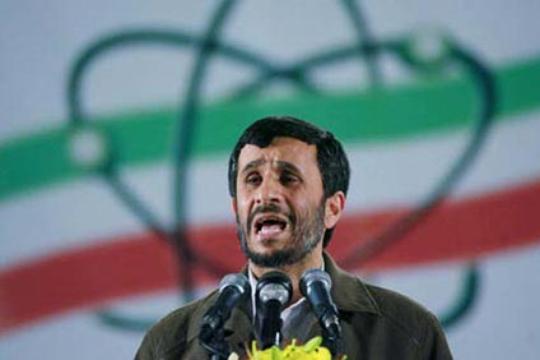
Jan techau from Carnegie Endowment for Peace commented on the new developments around Iran. Find the article below.
Most foreign policy prognosticators seem to agree that 2013 will see a decisive turn in the endless travails over the Iranian nuclear program.
The year 2012 has brought a few remarkable developments but no real progress on the issue. The Israeli prime minister, who was hell-bent on convincing the world that a military strike was urgently needed, overplayed his hand and had to back down. The United States was diplomatically paralyzed by its protracted presidential campaign but had enough influence to keep Israel from going at it alone. The Europeans, tasked with keeping the door open during the American absence, sent Catherine Ashton and her unshakeable chief negotiator Helga Schmid to keep the Iranians on board diplomatically. They in fact gained some international recognition for rather successfully doing so. Finally, the international sanctions regime not only remained intact but was significantly tightened despite the considerable costs it entailed for those involved, especially the Europeans.
So in a way 2012 was a year of “busy stagnation” on the Iran issue. But most observers believe that this stagnation will not be sustainable in the long run. Something will and must happen, not only because the tension that defines the current situation cannot last forever, but also because it is now more or less accepted that the status quo will only help Iran get closer to its ultimate goal, the ability to build a nuclear weapon.
As a consequence, rumors have been rife that a big new offer to Tehran is being worked on in Washington and that it will be presented by the P5+1 soon after President Barack Obama’s second inauguration next year. But the psychology of such an offer is hugely complicated and one can almost hear foreign policy strategists’ brains humming busily as they consider the implications.
First, such an offer would have to be credible. This means that it has to present Iran something that has not been offered before without compromising the main objective, which is to prevent the country from going nuclear. This will inevitably entail a deal that would allow Iran to enrich uranium up to a certain (low) level, retract all highly enriched material from the country, and allow for a robust and comprehensive inspection scheme to verify compliance. Similar deals have been offered to Iran before to no avail, so elements would have to be inserted that are genuinely new and attractive yet still strict and workable.
Second, the offer would have to differ significantly from past ones for two reasons: It must be attractive enough so that the Iranians could accept the deal without losing face and that the political price of saying no would be very high for them. There could be a change in mood in the international community should the mullahs reject what is widely considered to be a good deal. A military escalation could then face less resistance even by those who up to now still have some sympathy for the Iranian position. This is the double function of the offer: to both give diplomacy a genuine last chance and create legitimacy for a military intervention in case of rejection.
This leads to the third aspect of such a deal: It puts as much political pressure on the party that makes the offer as on the party to whom it is made. As it is widely believed this would constitute the last chance for a diplomatic solution, the P5+1 had better have a plan B ready in case the negotiations go nowhere. What if the offer is made and Iran says no? Do we have a credible plan ready on which we stay united even if the pressure, exerted by concerned publics, the press, and international peace movements, starts to mount? Obviously this issue is as crucial as coming up with an attractive new package.
This in turn leads us to yet another question: What if an offer is made to the Iranians and they say yes? Timing would then be of crucial importance. How swiftly could implementation be planned and executed? Who would do what? Who would pay for what? The international community cannot afford to drag its feet, lose time, and let precious momentum evaporate before any concrete steps are taken. The really frightening development would be if Iran were to say yes and then nothing were to happen.
The scenario for such foot-dragging is easy to imagine: Everything is very complicated and takes a great deal of time, something new and dramatic happens elsewhere, attention fades, the Iranians backpedal, and the right moment is gone with little chance of getting a similar opportunity again in the near future. What then? This is when an emboldened, re-elected prime minister of Israel could lose patience and decide to go it alone.
There is also another scenario in which the Iranians don’t say no but somehow also don’t say yes. They would give mildly encouraging signs without either explicitly accepting or outright rejecting the offer. This is probably the likeliest outcome, but it raises similar considerations as the foot-dragging scenario just mentioned. Would the coalition built around a carefully crafted final offer hold in the face of such ambiguity? Could it retain its resolve and then escalate both politically and militarily, if needed? Doubts prevail that it would, which is exactly what Iran is banking on. This is what makes the final offer such a difficult thing to put together.
The real test of a new overture to Iran lies less in the offer itself than in the maintenance of Western resolve after it is made. This is what will likely keep strategists, advisors and analysts awake at night over the next few months. And this alone has the potential to make 2013 a truly interesting year.

















